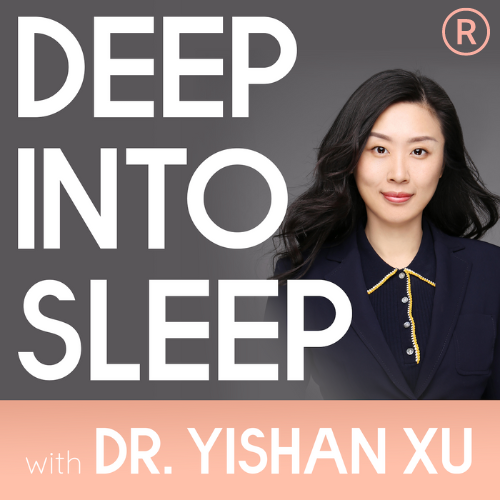Ep173: Toxic Sleep and Brain Fitness: Unraveling the Link Between Technology and Child Development with Dr. John Saito
OVERVIEW
"So as much as we have all this therapy and we identified in school and we have these programs and then they go home and instead we're getting 9 hours of sleep, they get five. So all that work in the day will not take in the night because the brain is still bricked, it's still not able to incorporate into learning memories and learning centers what you work so hard to do and then you go back and you give them another three 4 hours of working session under the same condition.”
Just treating the symptoms without identifying the underlying cause is ineffective. We need to look beyond surface-level symptoms and consider long-lasting changes in the brain. By understanding the role of sleep in brain development, we can create healthier habits and programs for our children.
The brain develops rapidly, especially in younger children, and exposure to technology can have lasting effects. Cognitive behavioral therapy and early intervention play crucial roles in rewiring neural pathways for proper brain development. Consistency is key, and parents must be role models for their children while establishing healthy routines.
Sleep is not just a period of rest; it is a vital time for brain function and development. During sleep, our brains consolidate memories, strengthen connections, and prune irrelevant information. Disruptions to sleep, such as exposure to light and social media at night or poor sleep environments, can lead to brain alterations and various health issues, including ADHD.
I had the privilege of speaking with Dr. John Saito, an expert in brain development and sleep, an assistant professor at Texas A&M School of Medicine and the director of Pediatric Pulmonary and Allergy at Scott & White Hospital in Texas. He specializes in the care of children with respiratory disorders such as asthma, chronic lung disease of prematurity, and obstructive sleep apnea along with all disorders of sleep including restless leg syndrome and insomnia. On the latest episode of Deep Into Sleep Podcast. We delved deep into the impact of toxic sleep and technology on brain development, especially in children.
Join us on this fascinating journey as we unravel the secrets of sleep and its impact on our brains. Together, we can empower ourselves to make informed decisions for the benefit of future generations.
If you're interested in learning more about psychological testing and the services offered at the MindBodyGarden make sure to visit their website at mindbodygarden.com/AssessmentClinic.
If you're interested in learning more about psychological testing and the services offered at the MindBodyGarden make sure to visit their website at mindbodygarden.com/AssessmentClinic.
I'm kind of concerned that we're a little bit too quick on utilizing medication. They are effective. Right, but treating the symptoms does not treat the toxicity. - Dr. John Saito
Are you so sleepy that you cannot focus? Are you tired of getting through the day drinking coffee? Are you worried how your poor sleep may impact your health? Checkout Dr. Yishan Xu’s Insomnia Treatment Course!
WHAT WILL WE LEARN
01:12 - The analogy of fires and symptoms, emphasizing the importance of identifying the root cause rather than just treating the symptoms.
02:46 - The impact of technology on children's brain development is explored, highlighting the need to help them develop healthy habits.
04:15 - Acknowledge the heavy influence of social media and technology on children and speculates on potential hardware changes in future generations.
06:07 - The role of genetics and epigenetics in brain development is discussed, emphasizing how the experiences of mothers and grandmothers can affect children.
08:34 - The concept of "toxic sleep" is explained, emphasizing the need to consider underlying causes rather than just focusing on symptoms.
10:15 - The detrimental effects of chronic exposure to sugar and disruptions in sleep on brain development are discussed.
12:23 - The impact of exposure to light and social media at night on children's development is highlighted.
14:09 - The importance of sleep habits and their impact on brain function, especially in children.
15:56 - The process of firing and wiring together in the brain is explained, along with the role of sleep in fortifying connections and synaptic pruning.
18:23 - The importance of early intervention and diagnosis in pediatric care is emphasized, as well as the need for parents to adjust their expectations and guidance in the era of technology.
RESOURCES
Are you so sleepy that you cannot focus? Are you tired of getting through the day drinking coffee? Are you worried how your poor sleep may impact your health? Checkout Dr. Yishan Xu’s Insomnia Treatment Course!
Connect with Dr. Yishan
Instagram: @mind_body_garden
Twitter: @dryishan
Facebook: @mindbodygarden
Connect with Dr. John Saito
Newsletter and Download Free Sleep Guidence E-Book:
CBT-I Courses:
Podcast Links:
Apple Podcast: https://podcasts.apple.com/us/podcast/deep-into-sleep/id1475295840
Google Podcast: https://podcasts.google.com/search/deepintosleep
Spotify: https://open.spotify.com/show/2Vxyyj9Cswuk91OYztzcMS
iHeartRadio: https://www.iheart.com/podcast/269-deep-into-sleep-47827108/
Support our Podcast: https://www.buymeacoffee.com/dryishan
Leave us a Rating: https://podcasts.apple.com/us/podcast/deep-into-sleep/id1475295840

